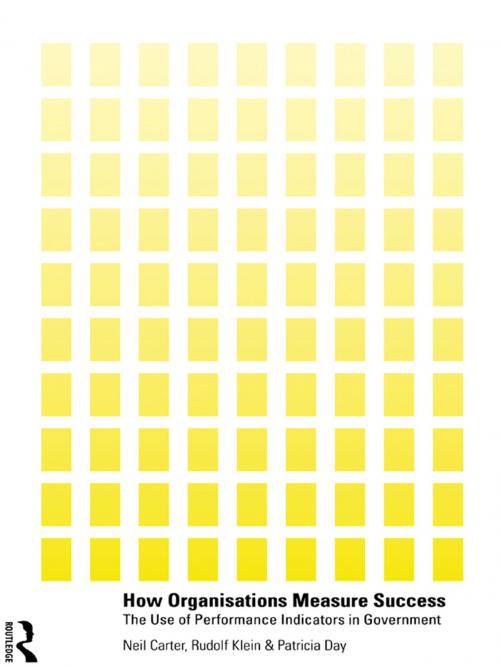How Organisations Measure Success
The Use of Performance Indicators in Government
Nonfiction, Health & Well Being, Medical, Patient Care, Health Care Delivery, Social & Cultural Studies, Social Science, Social Work| Author: | Neil Carter, Patricia Day, Rudolf Klein | ISBN: | 9781134813643 |
| Publisher: | Taylor and Francis | Publication: | January 22, 2002 |
| Imprint: | Routledge | Language: | English |
| Author: | Neil Carter, Patricia Day, Rudolf Klein |
| ISBN: | 9781134813643 |
| Publisher: | Taylor and Francis |
| Publication: | January 22, 2002 |
| Imprint: | Routledge |
| Language: | English |
Throughout the 1980s the British Civil Service devoted much time and energy developing indicators to measure the performance of government. Never before had so much stress been placed on accountability and performance; a trend which will be reinforced as government continues to devolve activities to agencies and looks for methods to assess their performance.
How Organisations Measure Success analyses existing methods from their origins in the 1960s to their revival in the 1980s as part of the Financial Management Initiative and its apotheosis in the 1990s Next Steps Initiative.
How Organisations Measure Success reports on two years of field research funded by the Economic and Social Research Council and will be of great interest to students of social policy and public administration as well as professionals working in government and public sector management.
Throughout the 1980s the British Civil Service devoted much time and energy developing indicators to measure the performance of government. Never before had so much stress been placed on accountability and performance; a trend which will be reinforced as government continues to devolve activities to agencies and looks for methods to assess their performance.
How Organisations Measure Success analyses existing methods from their origins in the 1960s to their revival in the 1980s as part of the Financial Management Initiative and its apotheosis in the 1990s Next Steps Initiative.
How Organisations Measure Success reports on two years of field research funded by the Economic and Social Research Council and will be of great interest to students of social policy and public administration as well as professionals working in government and public sector management.















